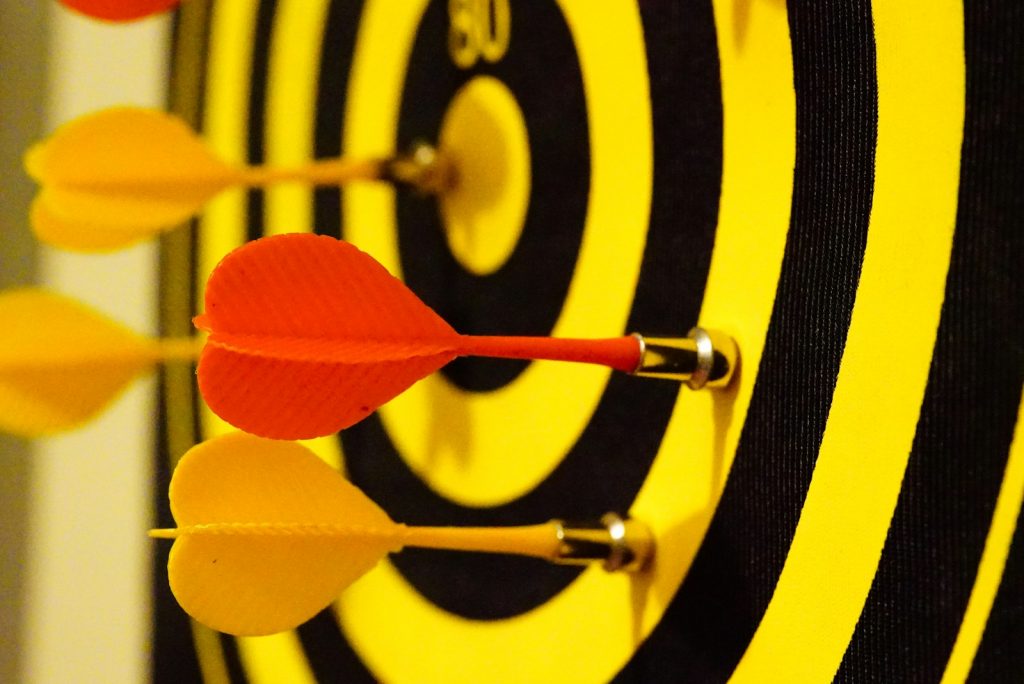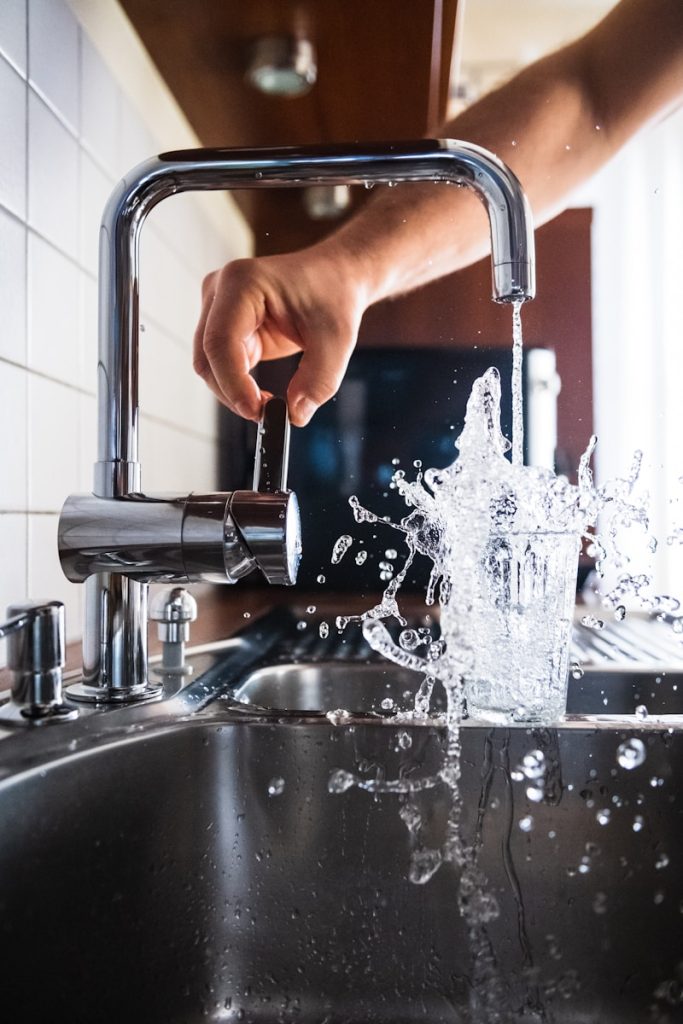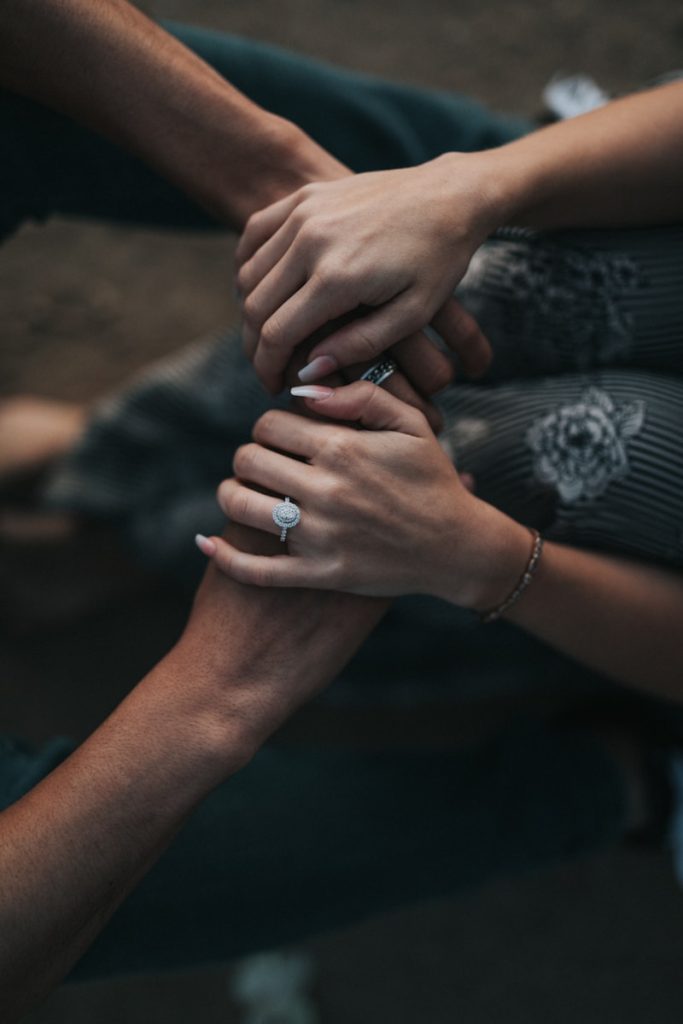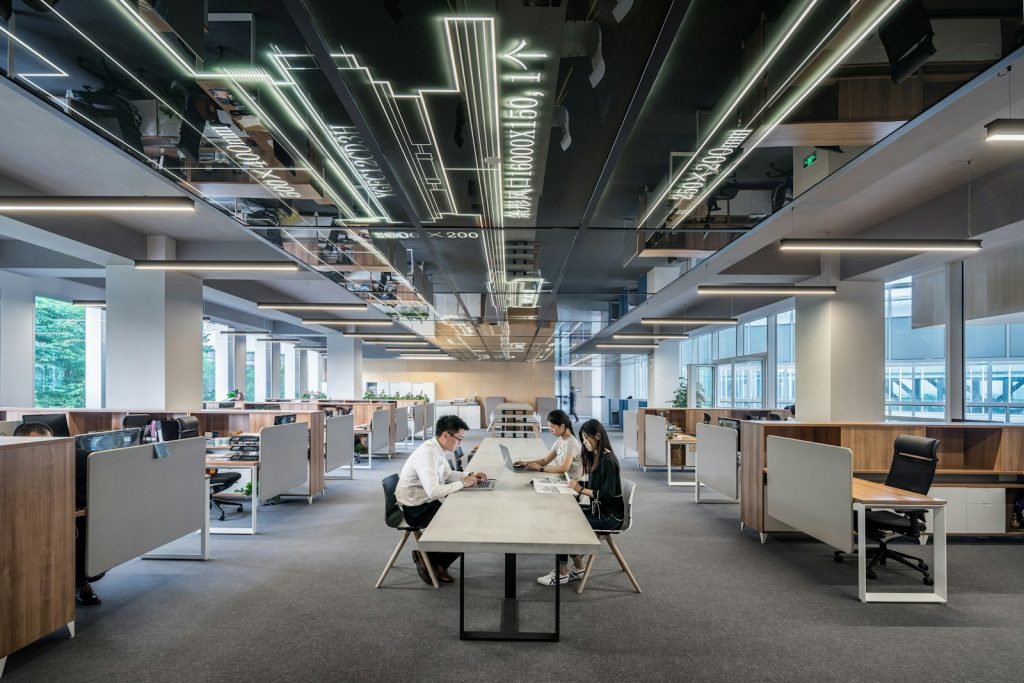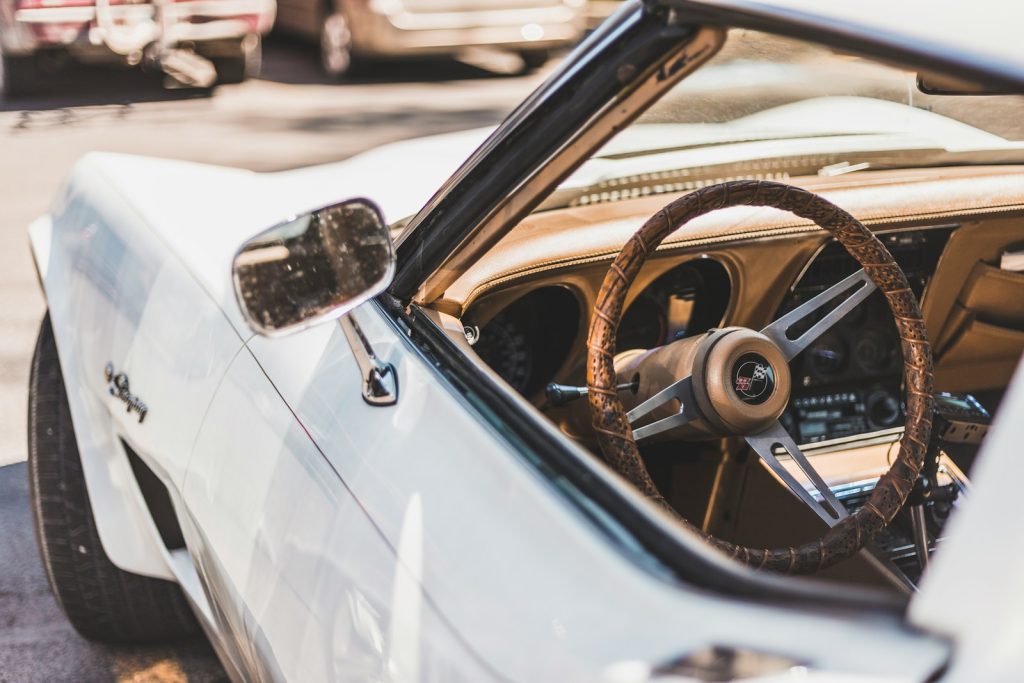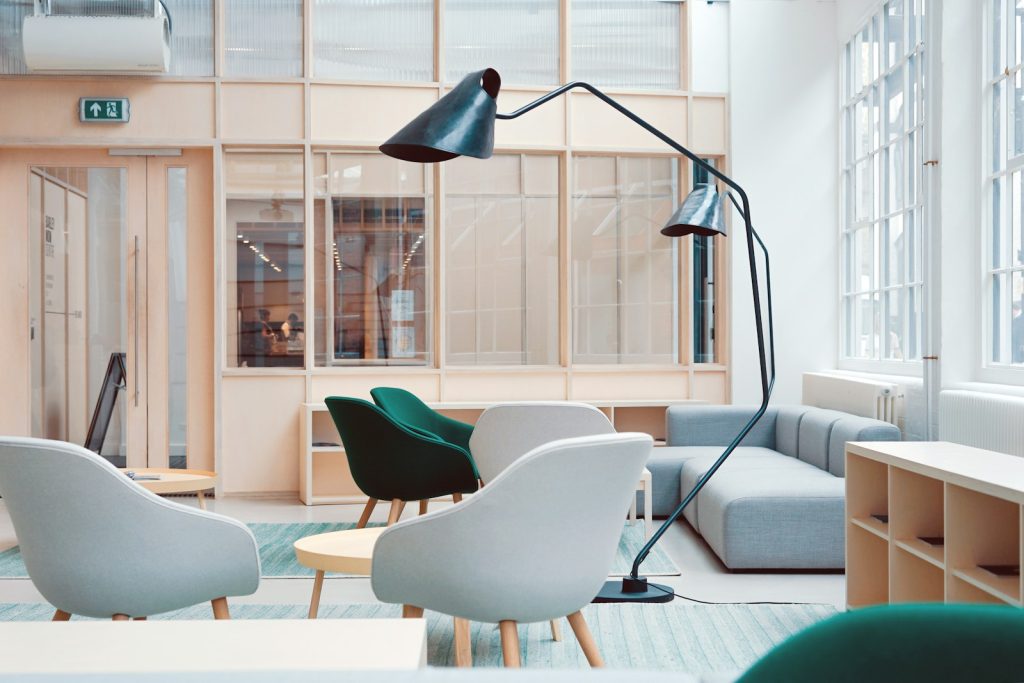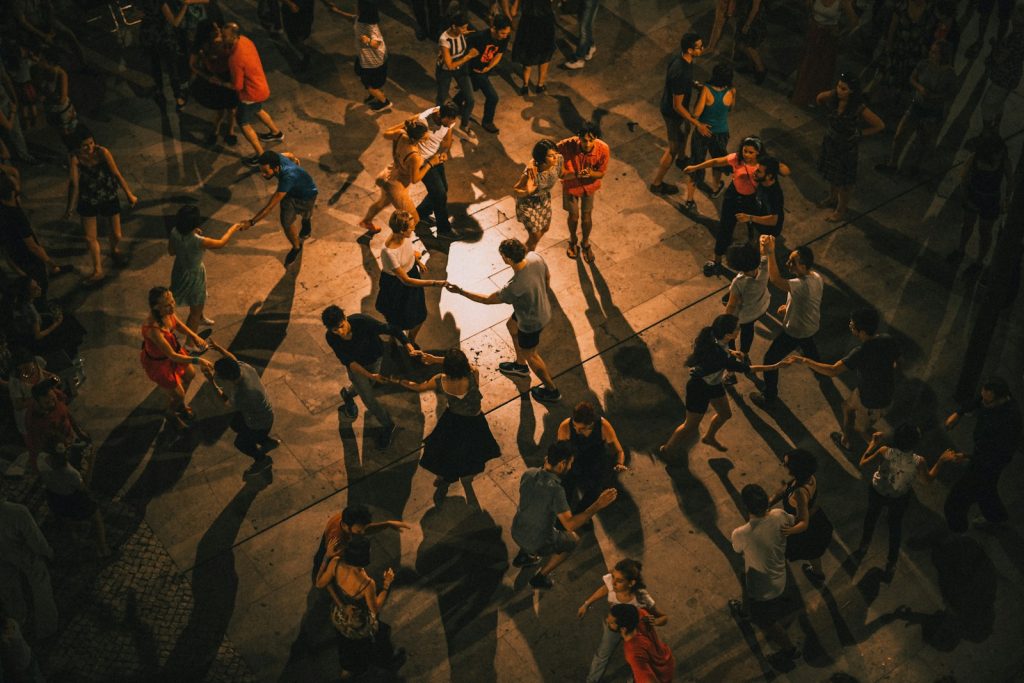Darts is a game filled with skill, accuracy, and tactics, and it has found a welcoming audience in Sweden. In this post, we’ll delve into how the game has grown in Sweden – “Allt om dart“, the role it plays in the culture, the competitive scene, and the resources available for players of every level. The Journey of Darts in Sweden Darts has its roots in history, tracing back to the practice of tossing small arrows at a target back in the day. In Sweden, the version of darts you see today started gaining popularity around the late 20th century. The formation of dart clubs and leagues played an essential role in its growth. By the 1990s, darts had firmly planted itself in Swedish pubs and social spaces, creating a vibrant community of fans. A Sport of Togetherness Darts has transcended being just a game in Sweden; it’s evolved into a fun activity that draws friends together, promoting friendly competition. It’s a common sight to see players enjoy figuring out their scores at local pubs, with leagues often organizing matches for all to join. This bonding experience adds to the attraction of darts, making it a cherished aspect of life in Sweden. The Competitive Scene of Darts Community Leagues and Events In Sweden, players can choose from multiple local leagues and tournaments designed for all experience levels. Whether it’s a laid-back competition at the local pub or a dedicated league, these events serve as great opportunities for players to sharpen their skills while interacting with fellow enthusiasts. One significant organization is the Swedish Darts Federation, which holds many competitive events across the country. The Professional Playing Field Though it may not churn out as many professional players as some nations do, Sweden has its share of aces. Players like Peter Sajwani have left their mark in Swedish darts, competing on international stages and stimulating interest in the game nationwide. Yet, breaking into a full-time career with darts is challenging due to limited financial support and prize pool opportunities. Gear and Resources for Darts Players Varieties of Darts When it comes to equipment, players can choose between different types of darts, mainly steel-tip and soft-tip. Steel-tip darts are the go-to for official competitions, while soft-tip darts are mainly used in electronic dartboards found in many social settings. Grasping the differences between these options can simplify the process of selecting the right darts to match personal preferences. Shopping for Darts in Sweden If you’re on the lookout for darts or any related gear, many online stores in Sweden offer a wide selection. Websites like Ubuy have great options for players of all skill levels, whether just starting out or seasoned experts. Additionally, several sporting goods shops carry a variety of important equipment for dart enthusiasts. Developing Skills and Training Coaching Opportunities and Workshops For new dart players eager to improve, coaching sessions from experienced players and recognized organizations can be highly beneficial. These services tailor their teaching to enhance techniques, outline strategies, and improve mental focus—each vital for succeeding in darts. A number of clubs facilitate regular practice meetings that create a welcoming environment for players to enhance their skills together. Online Help and Guides The online world opens doors for darts fans seeking to advance their understanding of the game. A myriad of dedicated dart websites offer valuable tutorials and advice on how to boost performance, and many build communities where players can discuss different tactics. Tapping into these resources can greatly enrich one’s grasp of darts. The Bright Future of Darts in Sweden As the interest in darts flourishes, the future looks promising for this sport in Sweden. With more media attention on dart events and higher involvement rates, more people are discovering all the fun darts can offer. Collaboration with international dart organizations may also pave the way for exciting prospects for Swedish players moving forward. Final Thoughts Darts occupies a special place in Swedish life, allowing for both competition and casual fun. With its strong foundations, vibrant community, and promising future, the world of darts in Sweden seems set to expand even further. Whether you’re starting your journey or looking to polish your skills, there’s no shortage of chances to dive into this captivating sport.
Essential Plumbing Maintenance Tips for Ibiza Homes
Taking care of a property in Ibiza involves many important tasks, with plumbing being one of the most crucial. Keeping the plumbing system maintained is not just about comfort; it also safeguards your financial investment. Here’s a guide filled with essential plumbing maintenance tips designed specifically for properties in Ibiza. Recognizing the Specific Plumbing Needs of Ibiza Properties Climate ChallengesProperties in Ibiza face unique plumbing challenges due to the island’s Mediterranean climate. Humidity levels can rise, leading to condensation issues and dampness, which can damage plumbing systems. Furthermore, homes located near the shore are at a higher risk of experiencing corrosion from salty air and water, indicating the need for regular checks and upkeep. Frequent Plumbing ProblemsHomeowners in Ibiza should stay alert for some common plumbing problems that could occur. These include: Seasonal Checklist for Plumbing Maintenance To make sure your plumbing setup remains in excellent condition all year, you should follow these seasonal maintenance steps: Spring Summer Autumn Winter Scheduling Regular Plumbing Inspections Having a qualified plumber regularly inspect your plumbing helps identify minor issues before they turn serious. Aim to have a professional evaluation at least once every year to: Simple DIY Plumbing Maintenance Ideas While you may need professionals for certain complex issues, there are plenty of basic plumbing tasks homeowners can handle themselves: Routine Monitoring Drain Cleaning Cleaning Faucet Aerators Upgrading Your Plumbing Infrastructure If your property is older or has outdated plumbing (such as galvanized steel pipes), it’s wise to think about modern upgrades. This includes: Preparing for Plumbing Emergencies It is essential to be ready for plumbing emergencies. Here are some ideas to help you be prepared: When to Seek Professional Plumbing Help Although being DIY-savvy can be advantageous, there are times when hiring a professional is necessary. If you decide to hire a plumber in Ibiza(fontanero ACS ibiza): Wrapping Up Maintaining proper plumbing is vital for safeguarding your Ibiza home from costly damages while ensuring a comfortable lifestyle throughout the year. By following this guide—performing seasonal checks, scheduling routine inspections, and recognizing when to turn to professionals—you can keep an efficient plumbing system that adds value to your property. Consistently addressing these details will not only protect your investment but also create a more enjoyable living atmosphere on this stunning island.
A Guide to Sending Parcels to Greece
When you want to send parcels to Greece cheaply, picking the right courier can make a big difference in how quickly and affordably your package arrives. Below, we take a closer look at some top courier services for parcel delivery to Greece, covering their features, pricing, and how long it takes to deliver. Overview of Courier Options Several trusted courier companies dedicate their services to shipping parcels to Greece. Each company has unique offerings that cater to various needs, including speed, affordability, and tracking features. Let’s dive into some of the best options available for your shipping requirements. 1. DHL Express Quick and Dependable ServicesDHL Express is well-known for providing fast delivery, often getting your package to Greece in just 1 to 2 working days. This speed makes it ideal for those urgent deliveries that cannot wait. CostsThe price you pay will depend on the size and weight of your parcel; however, DHL has an online tool available that lets you get a quote almost instantly by entering your parcel’s details. They also offer free packing materials at designated Service Points. Parcel TrackingDHL offers extensive tracking services, enabling senders and receivers to keep an eye on their parcels during transit. 2. Parcelforce Worldwide Varied Delivery ChoicesParcelforce has a variety of services to meet different requirements: Things to Keep in MindIt’s crucial to fill out address details accurately to avoid delays. Also, be aware that customs processes can slow things down, so make sure to check what you can and cannot send. 3. GLS (General Logistics Systems) Dependable ServiceGLS focuses on delivering parcels safely and efficiently, featuring clear pricing structures based on the parcel’s weight and size. They also offer a handy calculator for cost previews. Delivery TimelineTypically, you can expect your parcel to arrive in Greece in 5 to 6 working days—making GLS a reasonable option for shipments that aren’t urgent. Their online tracking is user-friendly, allowing multiple parties to track the parcel easily throughout its journey. 4. Parcel Monkey AffordabilityParcel Monkey compares various courier services like DHL and Parcelforce, helping users find the best prices for sending packages to Greece. Rates generally start at around £13.89, which depends on the size and weight of the parcel. Customs SupportDue to post-Brexit changes, Parcel Monkey makes the customs process easier by providing pre-filled forms during the booking process, helping those who might be unsure about international shipping rules. 5. Spourgitis Trans Specialized SolutionsSpourgitis Trans aims to offer affordable shipping options, claiming that their rates can be up to 70% less than standard postal services. This courier has a wealth of experience in international shipping, especially for products like olive oil. Transport NetworkThey have active routes operating daily throughout Europe, providing reliable service for both personal and business deliveries. 6. Eurosender Quick Price QuotesEurosender is another player in the international courier scene, delivering quick quotes online. They provide both express and standard delivery options, offering flexibility depending on how fast or budget-friendly you want the shipment to be. Insurance CoverageShipments can be insured if you want some added protection when sending valuable items, which can be really helpful for peace of mind. Comparison Table Courier Service Delivery Speed Cost Monitoring Special Highlights DHL Express 1-2 working days Varies (get a quote) Yes Provides free packing materials Parcelforce Worldwide 2-5 working days Varies Yes Several service types available GLS 5-6 working days Transparent pricing Yes Easy online parcel tracking Parcel Monkey Varies Starts at £13.89 Yes Simplifies customs process Spourgitis Trans Varies Up to 70% cheaper than traditional rates Yes Expertise in specific goods Eurosender Varies Instant quotes Yes Optional insurance Final Thoughts Deciding on the best service for sending parcels to Greece depends on what you need—whether it’s speed, cost, or additional options like tracking and insurance. By evaluating these considerations and using the options outlined here, you can select the courier service that serves your parcel delivery to Greece in both an efficient and cost-effective manner.
What to Expect in Your First Couples Counseling Session in Leipzig
Starting couples counseling can bring significant change to a relationship dealing with challenges. If you and your partner are thinking about joining a session in Leipzig, knowing what it involves can make it less stressful. Below, we break down what typically happens during the first counseling meeting, the objectives of therapy, and how to effectively prepare for a fruitful experience. The First Meeting When you attend your first couples counseling appointment, it’s essential that both you and your partner are present with the therapist. This combined session plays a vital role since it provides an opportunity for each partner to share their feelings and perspectives in a secure setting. The therapist’s primary job is to steer the conversation while ensuring both partners have a chance to express themselves without feeling dismissed. It’s vital for the therapist to understand how your relationship operates rather than making judgments. You’ll likely discuss your relationship up to this point, highlighting key moments that contribute to the challenges you are currently facing. Expect to cover issues like communication struggles, differences in parenting approaches, or issues with intimacy. Discussing Relationship Issues During this first session, much of the focus will be on addressing the problems affecting your relationship. The therapist will might ask various questions aimed at revealing the core concerns that as a couple you’re dealing with. It’s really important to be open during this discussion since it will lay the groundwork for future sessions and the goals set moving forward. Couples often bring different viewpoints to the table. One person might believe that the core of the problem lies in miscommunication, while the other could feel that intimacy is the main issue. Acknowledging these different opinions is crucial for successful counseling. Setting Goals Together During your initial visit, you and your partner will collaborate with the therapist to formulate specific goals for your counseling journey. These objectives serve as a guiding focus during your sessions, steering your conversations in a meaningful and productive manner. If you aren’t sure about what to aim for or how to identify your goals, don’t panic; this uncertainty is normal for many couples beginning therapy. The therapist will be there to help pinpoint areas you might wish to improve based on the challenges you’ve identified during your initial discussions. Possible Individual Sessions In some cases, after your joint sessions, there may be a need for individual meetings later on. These sessions can particularly help if one or both partners needs to address personal thoughts or feelings that they may find difficult to share in front of one another. Individual sessions often provide deeper insights into how each partner views the relationship and their individual requirements. Navigating Different Expectations Understanding that partners may enter counseling with various expectations is very important. One partner might be eager and committed to resolving the issues, while the other might feel uncertain about the future. Differing expectations don’t indicate failure of the therapy; instead, they highlight the complexities present in most relationships. The therapist’s job is to promote understanding and help navigate these differences in constructive ways. Open communication and empathy can empower couples to work towards common goals, even if their starting points are not aligned. Overcoming Fears Regarding Counseling A lot of people have misconceptions about couples counseling, especially concerns around being judged or pressured to separate. It’s necessary to realize that therapists are there to help couples heal rather than split them apart. The main goal of counseling is to improve the way partners communicate and resolve their conflicts. Ultimately, the choice to stay together or part ways depends on you two. The therapist will simply guide the process with a focus on compassion and expertise. Preparing For Your Session To get the most from your first counseling session, consider these steps to prepare: Finding a Suitable Therapist in Leipzig Leipzig provides many alternatives for couples counseling such as Paartherapie Leipzig, including various private practices and online platforms which can connect you to qualified therapists who match your preferences. When looking for a therapist, think about factors like their therapeutic methods, language ability (if English is required), and their focus on couples therapy. Certain therapists aim to create welcoming environments where each partner feels comfortable tackling sensitive subjects. Doing some research on potential therapists in advance can help enhance the chances that you find a good fit for both of you. In Conclusion Your first couples counseling session in Leipzig can stir up many emotions, but it can also be a highly beneficial experience. Knowing what to anticipate—like collaborative discussions with the therapist, setting shared goals, and recognizing individual viewpoints—can help you approach this new journey confidently. Ultimately, therapy is meant to aid in building understanding and strengthening connections within the partnership. With commitment from both sides and expert guidance from a therapist, many couples discover new hope and resilience in their relationships, thanks to a supportive counseling framework. As you start this journey together, stay open to each other’s feelings. Every conversation you have in counseling brings you a step closer to knowing each other better and reinforcing your relationship as partners.
The Essential Need for a Translation Partner in the German Market
Introduction In today’s interconnected world, good communication is crucial, especially for businesses that operate in Germany or aim to break into the German market. Having a trustworthy translation partner is key to navigating these challenges effectively. This article highlights the reasons every company should consider having a dependable translation partner in Germany, emphasizing the significance of precise translations, cultural awareness, legal factors, and the advantages of clear communication. The Value of Precise Translations Clarity in Communication Being accurate in translations is vital to ensure that messages are understood accurately. When translations go wrong, it can lead to confusion, strained relationships, and potential financial losses. In Germany, where there is a strong emphasis on clarity and precision in business talk, employing a skilled translation partner can help avoid these mistakes. Specialized Knowledge for Different Industries Different sectors use specific terms and language. A good translation partner will know the terminology of areas such as law, medicine, technology, and marketing. This specialization makes sure that the translated documents are not only correct in language but also relevant in context. For example, legal documents need a careful and precise approach, especially when adhering to local laws. Recognizing Cultural Differences Understanding Cultural Sensitivity Germany boasts a rich culture and unique interpersonal norms. Making a translation effective means grasping these cultural distinctions. A trustworthy translation agency(Übersetzungsbüro) knows these nuances well and can adjust the content as necessary. Being sensitive to culture allows businesses to connect with their target audience, nurturing trust. The Difference between Localization and Translation Localization is more than simply translating words. It means shifting the content to better fit the cultural backdrop of the audience. This could involve adjusting visuals, symbols, and text that may not fully translate. An adept translation partner will offer localization services that make marketing content, websites, and product descriptions appealing to German consumers. Legal Obligations Alignment with Local Regulations Germany has strict laws regarding advertising, consumer protections, and data privacy. Businesses must follow these rules to dodge legal issues. An established translation partner is familiar with these regulations and can help businesses ensure that their translated materials meet all necessary legal requirements. Clear Contractual Language When forming partnerships in Germany, clear language is essential in contracts. Vague translations can result in misunderstandings. A reputable translation partner guarantees that all contract language is precise and binding, safeguarding the interests of everyone involved. Uplifting Customer Experience Earning Customer Trust In a diverse market like Germany, customers value businesses that communicate in German. Providing translated documents shows a business’s dedication to customer service and inclusivity. A reliable translation partner makes sure that all communications are straightforward and easy for customers to understand, creating a better experience. Boosting User Engagement Providing content in German can significantly elevate engagement on websites and social networks. By making information accessible in the local language, businesses can appeal to a broader audience and encourage interaction. A competent translation partner can also enhance content for local SEO, making businesses easier to find in search results. Gaining a Lead Over Competitors Differentiating in the Market In a competitive environment, businesses that focus on top-notch translations stand out from others. Clear, relevant, and culturally aware communications can help attract and retain more customers, fostering brand loyalty. A qualified translation partner supports maintaining a consistent brand message across languages. Adjusting Marketing Messaging Developing effective marketing strategies often involves tailoring messages to different regions. A skilled translation partner can assist companies in modifying their marketing approaches to better connect with German audiences while keeping brand identity intact. This approach can drive sales growth and help in market establishment. Making Business Operations More Efficient Enhancing Communication Flow Working with a dedicated translation partner can simplify communication within a company. By ensuring timely translations of internal documents, training materials, and reports, businesses can foster better teamwork among multilingual staff. This streamlining, in turn, improves productivity and enables smarter decision-making. Aiding Global Expansion For companies aiming to go global, having a trusted translation service is crucial. They can help with translating market research, legal documents, and the localization of products or services. This assistance allows companies to manage the challenges of entering new markets with confidence. Conclusion To sum up, any business looking to succeed in, or targeting, the German market should prioritize developing a relationship with a reliable translation partner. The advantages of accurate translations go way beyond simple language changes; they include an understanding of culture, compliance with legal norms, improved customer interactions, competitive benefits, and optimized operations. Putting resources into professional translation services is not just a cost; it’s a smart strategy that can have a significant positive effect on a company’s performance in Germany’s ever-evolving market. By acknowledging the importance of effective communication through accurate translations and cultural adjustments, companies can build stronger bonds with their customers and partners, positioning themselves for further growth in this increasingly connected world.
Understanding Transponder Car Keys in the Gold Coast
In today’s cars, transponder keys are a common feature that adds both security and convenience for vehicle owners. For those living in the Gold Coast area, it’s important to be aware of how these keys work, their advantages, and the available services related to them. This guide covers all you need to know about transponder car keys in the Gold Coast. What Exactly Are Transponder Car Keys? Transponder car keys are special types of car keys fitted with a tiny electronic chip that interacts with a vehicle’s ignition system. This chip sends out a unique code that needs to correspond with the code programmed in the car’s computer to start the engine. Introduced in the 1990s, this technology greatly helps in preventing car theft, since only the original key can allow the vehicle to start. How Do Transponder Keys Function? When you place your transponder key in the ignition or press the start button, the car’s antenna detects the signal from the chip. If the code matches the car’s onboard computer, the engine starts. If not, the vehicle is kept immobilized. This nifty system greatly lowers the chances of hot-wiring or unauthorized vehicle start-ups, establishing transponder keys as crucial for modern automotive safety. Why Should You Use Transponder Car Keys? Transponder Key Services in the Gold Coast Area Key Replacement and Duplication In the Gold Coast, there are several locksmith services ready to help with the replacement and duplication of transponder keys. Local providers like Coast Car Keys and Replacement Car Keys offer mobile solutions, meaning they come directly to wherever you are to create new keys quickly. They can work with a variety of car makes and models, ensuring that keys are properly programmed to meet your vehicle’s needs. Emergency Locksmith Services Locksmiths in the Gold Coast also cater to urgent situations, such as being locked out of your car or misplacing your keys, with services available around the clock. For example, companies like Border Locksmiths and SPL Security Solutions can quickly respond when you’re in a jam, so you don’t have to wait long before getting help. Programming Keys The process of programming a transponder key requires specific machines and expertise that only seasoned locksmiths have. They use advanced equipment to make sure the new key functions well with the vehicle’s security system. It’s important to note that a key that isn’t programmed right won’t ignite the engine, and trying to use one can accidentally trigger restrictions in the vehicle’s systems. Tips for Selecting a Locksmith When deciding on a locksmith for transponder key services in Gold Coast, keep several key factors in mind: Common Problems with Transponder Keys Final Thoughts In the Gold Coast, transponder car keys are essential for vehicle security and provide added convenience. Their unique technology benefits car owners by keeping their vehicles safe. With multiple locksmith options available for key replacement, programming, and urgent assistance, help is just a call away. By understanding transponder keys and finding a good locksmith, you’ll enhance your vehicle’s security seamlessly.
The Key to Upscale Living: Insights from Leading Interior Designers in London
Creating a luxurious living space combines comfort, style, and a bit of flair. London, a city celebrated for its sophisticated charm and historical richness, is home to skilled interior designers who excel at crafting impressive spaces. These experts have some valuable advice on how to turn your home into a haven of luxury. Let’s delve into their top suggestions by a London interior designer for elevating your living experience. 1. Choose Quality Rather Than Quantity At the heart of upscale living is the idea of valuing quality over quantity. London’s prominent interior designers often highlight the significance of selecting premier materials and furnishings. This means opting for custom-made furniture and artisanal pieces, alongside sumptuous fabrics like silk, velvet, and premium linens. Helpful Tip: Rather than cluttering your space with numerous items, focus on a few key pieces that can make a statement. A stunningly designed dining set or an elegant chandelier can instantly add sophistication to your home. 2. Develop a Clear Color Scheme An important aspect of achieving a luxurious feel is establishing a consistent color scheme. Designers frequently suggest starting with neutrals and adding colorful accents to create character and dimension. Soft hues such as cream, taupe, and gray can set a tranquil atmosphere, while rich jewel colors like emerald or sapphire can infuse warmth. Helpful Tip: Use colors deliberately in accents, such as in cushions, decorative features, or walls to maintain an aesthetically pleasing look without overwhelming the senses. 3. Mix Different Textures A well-designed luxury interior showcases a blend of textures that not only captures attention but enhances comfort. Combining various materials, such as wood, metals, glass, and fabrics, can create richness within a space. Layering also plays a significant role; for example, placing a soft area rug over wooden floors or combining several types of fabrics on bedding can elevate the luxury level. Helpful Tip: Try different textures in your décor. Picture combining a velvet couch with silk cushions and a knitted blanket for an inviting yet chic look. 4. Pay Attention to Lighting Lighting is vital in defining the mood of a room and enhancing its luxurious feel. Designers often use a mix of ambient, task, and accent lighting to achieve this balance. Eye-catching fixtures like impressive chandeliers or designer lamps can act as artistic centerpieces. Helpful Tip: Installing dimmer switches can give you more control over your lighting, allowing you to adjust the mood to be bright and lively or soft and cozy as needed. 5. Infuse Your Personal Touch Luxury encompasses not only unparalleled opulence but also a sense of personalization. Integrating elements that showcase your personality can elevate a house into a home. This could include anything from artwork and heirlooms to keepsakes from your travels or experiences. Helpful Tip: Create a gallery wall featuring a combination of personal photos and artwork that you cherish. This will inject individuality and warmth into your environment. 6. Optimize Function and Space Living in bustling cities like London often means dealing with limited living space, thus making it crucial to emphasize functionality while retaining style. Many designers suggest using built-in storage solutions and versatile furniture that promote a neat, luxurious atmosphere. Helpful Tip: Look for furniture that serves a dual purpose, such as an ottoman that doubles as storage or a coffee table that expands for increased guest seating. 7. Bring the Outdoors Indoors Many of London’s trendsetting designers are adopting the habit of bringing nature inside. This can include adding living plants, flowers, and letting in natural light which can really enhance the feel of a space while also improving well-being. Helpful Tip: Use eye-catching potted plants or even a vertical garden as a striking feature. Additionally, maximizing light through big windows or reflective surfaces can make rooms feel larger and more airy. 8. Select Unique Art and Accessories Art pieces and accessories play a significant role in embodying sophistication and personality in any space. Interior designers in London often recommend investing in one-of-a-kind artwork or distinctive sculptures that echo your taste. Charming accessories like decorative vases and chic trays can significantly enhance an overall aesthetic. Helpful Tip: Change out accessories based on the seasons to refresh your living area. Just swapping cushions or introducing season-specific decoration can create a vibrant shift. 9. Ensure Comfort is a Priority Even in pursuing style, comfort should never be neglected. An upscale living area should feel welcoming and cozy. Choose furniture that combines aesthetics and comfort, employing soft fabrics and textures. Helpful Tip: Arrange seating to foster relaxation and conversation. Adding soft blankets and sumptuous cushions can create a cozy and inviting vibe. 10. Keep Up with Design Trends Lastly, staying updated on current design trends can help maintain a stylish and sophisticated living space. Many interior designers in London find inspiration in international design movements, balancing modern looks with timeless styles. Helpful Tip: Follow design industry blogs, magazines, or the social media profiles of top designers to spark ideas and inspiration for your home. Conclusion Creating a luxurious living space involves an intricate blend of high-quality materials, personal details, and thoughtful design. By implementing these tips from London’s top designers, you can build a home that reflects your individual style while radiating comfort and elegance. Remember, the charm of high-end living lies in the meticulous choices you make, as they culminate in a harmonious and refined environment.
Essential Questions to Ask Before Hiring an SEO Agency
When you’re thinking about picking an SEO agency(SEO aģentūra), it’s important to ask the right questions. This way, you make sure you find a partner that can help you achieve your business goals effectively. Here are ten essential queries to consider before making your selection. 1. Can You Share Examples or Case Studies of Previous Work? It’s beneficial to ask for case studies or examples of clients the agency has previously worked with. This not only helps you confirm that the agency can be trusted, but it also offers a glimpse into their previous accomplishments relevant to your industry. An experienced agency should provide clear examples of results they have achieved, such as increased website traffic, improved search engine rankings, and metrics from successful campaigns tailored to similar objectives. 2. What Is Your Strategy for SEO? Grasping how the agency approaches SEO is critical. They should be able to explain a tailored strategy specific to your needs instead of giving you a generic plan. Inquire about their methods for enhancing your search visibility, and what key performance indicators (KPIs) will be monitored to track progress. A reliable agency will perform comprehensive research about your business and the market to formulate an effective, customized strategy. 3. How Do You Keep Up with Changes in SEO? Since the SEO landscape changes frequently, it’s essential for the agency to stay on top of the latest trends and algorithm updates. Ask about their strategies for keeping current with industry changes, such as attending industry events, participating in ongoing training, or using the latest tools. Their ongoing learning will be important for adapting to shifts and ensuring that strategies remain effective. 4. What Services Do You Provide? Agencies can differ greatly in the services they offer. Make sure to specify which services are available, such as keyword research, content creation, technical SEO tasks, or link development. Confirm that their services fit your business objectives, and that together, you can build a thorough online strategy. 5. How Do You Carry Out Keyword Research? Keyword research serves as a critical foundation for SEO practices. It’s wise to ask how the agency identifies and chooses keywords for your campaign. They should consider user intent, competition level, and how relevant these keywords are to your business. Find out which tools they employ and how they arrange and prioritize the keywords they target. 6. Who Will Be Assigned to My Project? Knowing more about the team assigned to your project is important in developing a solid working relationship. Clarify the size of the team that will be managing your account, and what their responsibilities entail. Understanding who your key contacts are ensures that you know where to seek assistance and facilitates better communication. 7. How Do You Communicate with Clients? Clear communication plays a vital role in maintaining a fruitful collaboration. It’s worth discussing how the agency typically interacts with clients – whether via email, phone calls, or video sessions. Confirm their usual frequency for updates and verify that their communication methods align with your preferences, ensuring that you remain well-informed about progress. 8. What Are Your Pricing Structures and Budget Expectations? Getting a clear picture of the costs involved is crucial before you commit to any arrangement. Ask the agency how their pricing works and if there are any additional expenses tied to campaign execution. A trustworthy agency should offer a detailed breakdown of their fees while helping you understand the budget you’d need for successful SEO practices. 9. What Results Are Realistic, and When Can I Expect Them? Setting realistic outcomes is vital for creating a successful SEO relationship. Try to find out what results you might see and their expected timelines. While SEO generally takes time to show effects, a competent agency should be able to provide a rough timeframe when you can anticipate observing results based on their experience with clients that have similar profiles. 10. Do You Follow Ethical SEO Techniques? It’s essential to ensure the agency practices ethical SEO methods. Inquire about their link-building techniques and check if they comply with guidelines set by search engines. Steer clear of any agency that uses unethical (“black hat”) strategies, as these tactics can harm your website’s reputation in the long run and may result in penalties. Conclusion Finding the right SEO agency can greatly influence your online presence and overall business performance. By addressing these ten questions during your research, you’ll uncover essential insights about the agency’s capabilities, their approach to SEO, and how their goals align with yours. Making an informed choice will lead you to a partner who truly understands your business needs and has a solid track record of achieving impressive results.
The Top 10 Unique Personalized Baby Gifts in the UK: A New Parent’s Guide
Celebrating the arrival of a new baby is a significant event, and finding the right gift can bring both joy and added pressure. Personalized baby gifts have become quite popular due to their special touch that makes them unforgettable and loved. This guide presents the top 10 personalized baby gifts you can find in the UK, offering thoughtful choices that suit a variety of styles and preferences for new parents. 1. Customized Baby Bodysuit A customized baby bodysuit is an essential gift that mixes usefulness with warmth. These cozy outfits can be made extra special by adding the baby’s name or a heartfelt phrase. Ideal for daily wear, they also make sweet photo opportunities. There are plenty of retailers, like Not On The High Street, showcasing various styles that suit what the new parents might love. 2. Engraved Wooden Baby Rattle An engraved wooden baby rattle makes for a lovely present that acts both as a toy and a keepsake. Made from quality natural wood, these rattles can be personalized with the baby’s name or their birth date, providing a cherished memory. They promote sensory learning as well as grow into a loving treasure for years to come. 3. Customized Storybook Customized storybooks are an excellent method of encouraging a child’s imagination while making them the hero of their own tale. These unique books incorporate the child’s name and various details, leading to a special story time experience. They are great for bedtime reading and can become treasured items that nurture a love for stories as the kid matures. 4. Personalized Blanket A cozy, personalized blanket is both functional and special. These blankets often feature the baby’s name or initials stitched on them, making them a perfect addition to the nursery or cuddle time on cold evenings. With choices ranging from plush fleece to beautiful knitted designs, you can easily find one that balances comfort and charm. 5. Customized Baby Footwear Customized baby footwear, including adorable leather mouse shoes, makes for a fashionable yet practical gift. You can personalize them with the child’s name, providing a unique touch for outings. Not only do they look super cute, but they also ensure comfort as the baby starts to discover the world around them. 6. Personalized Name Puzzle A personalized name puzzle is a fun and educational gift that encourages early learning. Made out of wood, these puzzles display the child’s name, making it an enjoyable way for them to learn their letters while they play. They serve as lovely decorations for the nursery and double as a fun activity as kids grow older. 7. Customized Nursery Artwork Creating a warm atmosphere in the baby’s room can be achieved through personalized nursery artwork. These prints can display the baby’s name, their birth date, or a touching quote, offering a unique decor element that families will treasure. This artwork adds an extra bit of love and elegance to the nursery. 8. Keepsake Memory Box A personalized memory box is not just a thoughtful present but also a practical one that helps parents save special memories of early life. These boxes can be engraved with the baby’s name to hold meaningful items like hospital bands or first curls. This type of gift encourages families to cherish and preserve beautiful moments, setting a foundation for legacy gifts. 9. Personalized Bath Blanket A personalized bath towel transforms bath time into a more luxurious experience. These towels aren’t just functional; they can feature the baby’s name prominently, making them special. Given their plush, absorbent fabric, they wrap the little one up in cozy warmth right after bath time. 10. Tailored Stuffed Toy A personalized stuffed toy, like a cuddly teddy bear or soft bunny, can quickly become a child’s best friend. Standing out with a custom name or special message, these toys possess a uniqueness that kids and parents will adore. They offer fantastic cuddling moments and can serve as an emotional support buddy as the child grows up. Wrapping Up Choosing a unique personalized gift for a new baby adds a sentimental experience to the celebration. Whether you decide to go with more functional gifts like bodysuits and bath blankets, or heartfelt keepsakes like storybooks and memory boxes, these presents are bound to charm new parents. The meaning behind personalized gifts ensures that they will be loved for years, contributing to wonderful family memories. As you choose the ideal gift, think about the tastes of the parents and the distinctive qualities of their baby, guaranteeing that your gift stands out among conventional choices.
Discover the World of Online Salsa Dancing
If you’re thinking about learning how to dance salsa, online courses are a fantastic choice. Whether you’re just starting out or have some dance experience, these courses cater to everyone. In this article, we’ll take a closer look at what makes online salsa courses beneficial, what to expect in their structure, and how you can progress from being a beginner to a seasoned dancer, particularly for those interested in the German market. Benefits of Taking Online Salsa Dance Lessons Flexibility That Suits You One of the best features of online salsa dance courses is their flexibility. You can take classes at times and places that fit your lifestyle. This is incredibly helpful, especially for those with packed schedules, as there are no set times you need to follow. Budget-Friendly Learning When comparing options, Online Salsa Tanzkurse usually don’t strain your wallet as much as traditional dance schools. Traditional in-person sessions may charge between 10 to 50 euros each hour, while many online offerings provide access to a range of learning materials for around 12 to 20 euros a month. This affordability makes salsa dancing a reachable goal for many individuals. Learning from the Best Another impressive perk of online courses is the chance to learn from skilled instructors. Many online courses pair you with experienced dancers willing to offer valuable insights and personal feedback, allowing you to improve and feel more confident in your skills. How Online Salsa Dance Courses Are Organized An effective online salsa course typically comprises crucial elements: Fondamentals Starting with the fundamental moves is a must. Sound courses introduce you to essential steps fundamental to all advanced techniques. You’ll practice the basic step, the side step, and the backward step, learning different variations along the way. Movement and Music Connection Understanding body movement is a key element in salsa dancing. An effective class will help you learn how to move your body to the music’s rhythm. It’s important to explore various salsa styles, including LA salsa and Cuban salsa, to broaden your skills. Dancing with Partners Partner work is a significant aspect of salsa dancing. This includes techniques for leading and following, grip positioning, and interactions with your dance partner. It’s essential to grasp the connection and communication between partners to dance seamlessly together. Consistent Practice Habits Progress requires regular practice. It’s best to aim for at least two to three sessions each week. This consistent effort will not only enhance your skills but also help embed movements into your memory. Strategies for a Successful Journey Aim for Achievable Goals When starting out, it’s useful to set small, manageable goals. Focus on perfecting the basic steps before moving on to more complex techniques. Keeping these goals realistic will help you stay motivated. Explore Additional Materials Don’t just rely on your online course; supplement your learning with various other tools. Websites like YouTube, online communities, and social platforms can connect you with fellow dancers while providing additional training materials. Embrace Feedback Stay open to receiving constructive criticism from instructors or peers. This feedback is crucial for your growth as a dancer and serves to refine your techniques while offering fresh insights. Have Fun! Remember that fun is a key part of salsa dancing. It’s a vibrant and social kind of dance designed to bring happiness. Don’t let the quest for perfection spoil your joy; instead, enjoy each lesson and cherish the connections you make through dancing. Final Thoughts Enrolling in online salsa courses is a perfect way to start dancing and transform into a confident performer. With the advantages of flexibility, affordability, and guidance from seasoned instructors, these classes serve as an outstanding method to boost your dancing capabilities. Whether you’re dancing solo or with a partner, the exciting world of salsa dancing is yours to explore. Begin your dance journey now, and experience the joy and exhilaration that salsa can bring into your life!
